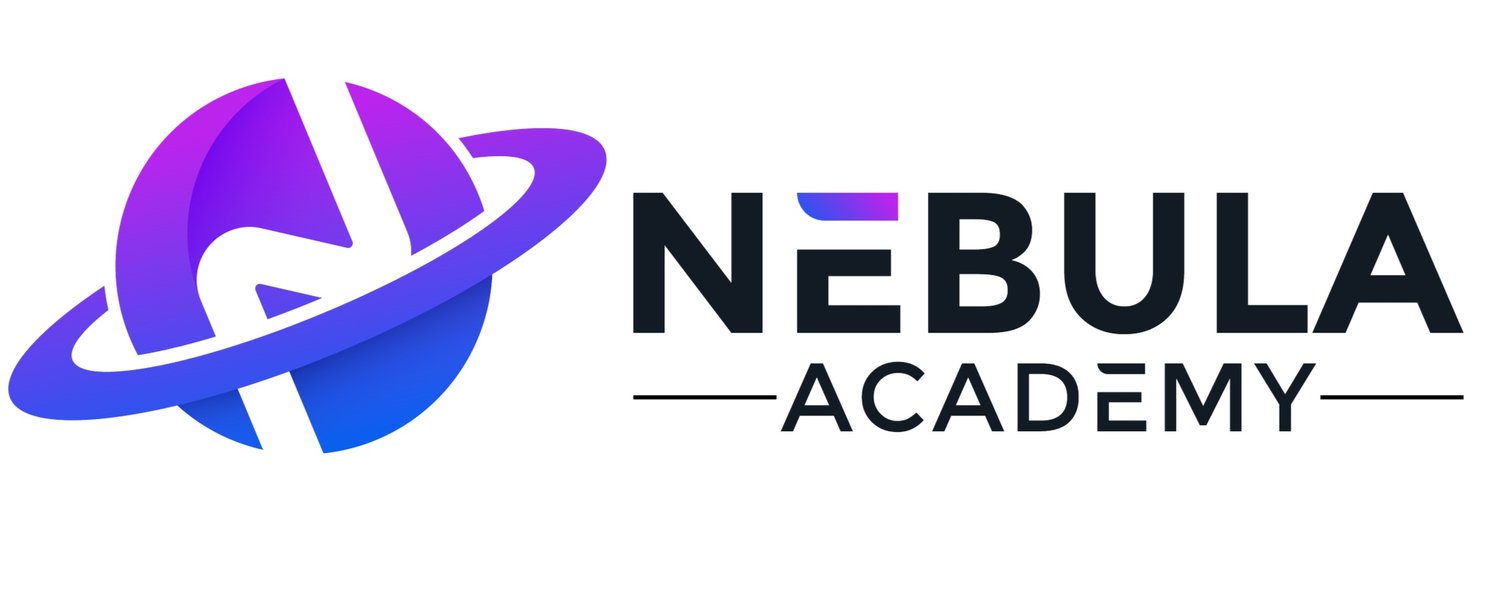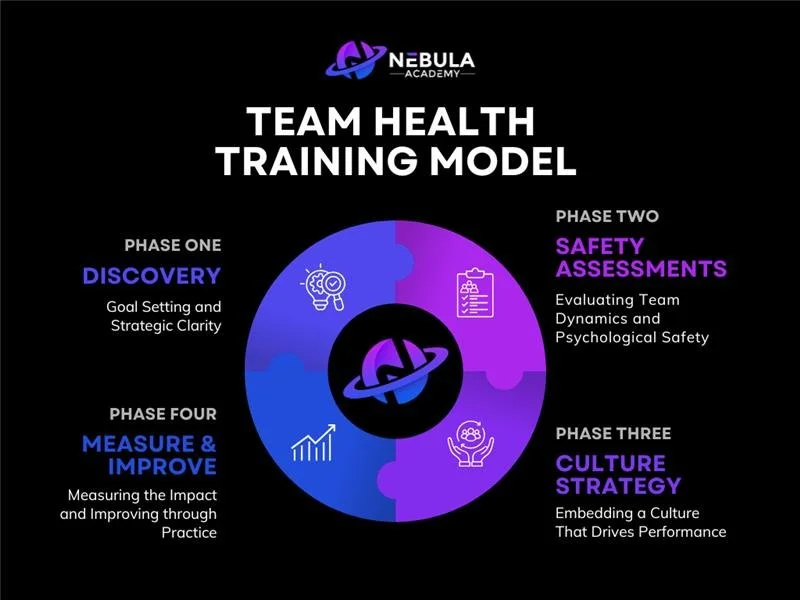Inside Our Team Health Training Model
How We Build Aligned, Resilient, High-Performing Teams from the Inside Out
In a fast-moving business environment, teams are under pressure to produce more—with less. Deadlines are tighter. Talent turnover is rising. Communication breakdowns are costly. But the real threat isn’t just burnout or disengagement; it’s team misalignment.
At Nebula Professional Development Academy, we help organizations address these challenges through our Team Health Training Model, a research-based, results-driven framework that improves how teams communicate, collaborate, and perform together under pressure.
We believe healthy teams are your most powerful growth asset. Here's how we help you build one.
Phase One: Strategic Discovery & Goal Setting
Every engagement begins with a collaborative discovery session to understand the challenges your team is facing and the goals you want to achieve.
Are you losing momentum due to poor communication?
Struggling to retain top talent or onboard new managers?
Dealing with burnout, low trust, or culture misalignment?
We don’t offer a one-size-fits-all solution. We align training to your business objectives, whether that’s scaling your workforce, improving cross-functional collaboration, or reducing attrition.
Phase Two: Psychological Safety Pulse Assessment
We assess each team member’s individual psychological safety profile using our S.A.F.E.T.Y.™ framework (Security, Autonomy, Fairness, Esteem, Trust, and You). This gives us insight into:
What motivates or triggers each individual
How people are interpreting daily interactions
The internal dynamics impacting collaboration and decision-making
We also assess overall team health, providing leaders with a birds-eye view of how aligned—or misaligned—the group currently is.
This diagnostic process is eye-opening. Most teams don’t realize where their stress points are until we surface them through the data.
Foundational Training on Psychological Safety
We use your assessment data to deliver a customized training experience focused on increasing:
Awareness of psychological needs
Emotional agility and self-regulation
Constructive communication patterns
Peer-to-peer trust and empathy
By teaching the science behind safety, we help teams replace assumptions and reactions with clarity and intentional connection.
Phase Three: Strategy + Practice = Sustainable Culture
Great culture doesn’t happen in the training room, it happens in the work. That’s why we follow every training with:
Practical strategies for managing team dynamics
Communication protocols for meetings, feedback, and conflict
Team rituals and agreements to reinforce safe behaviors
Manager coaching to sustain momentum and accountability
This is where Team Health becomes more than a concept, it becomes your competitive advantage.
Phase Four: Measure, Adapt, Improve
We close the loop with post-training assessments and outcome analysis. You’ll see:
Growth in psychological safety and engagement scores
Improvement in team clarity, connection, and communication
Insight into leadership perception and team alignment
Data you can use to inform ongoing professional development
Why Team Health Is More Than “Soft Skills”
Healthy teams perform better, adapt faster, and stay together longer. They:
Communicate with clarity and respect
Own their roles and stay aligned to mission
Handle feedback and change without spiraling
Support each other in high-stress environments
Drive results, because they trust the process and each other
When your teams are healthy, everything flows better: productivity, retention, innovation, and growth.
Ready to Strengthen Your Team from Within?
If you’re serious about building a resilient, high-performance team culture, our Team Health Training Model gives you the structure, support, and tools to do just that.
👉 Book a discovery session to learn how to get started.

